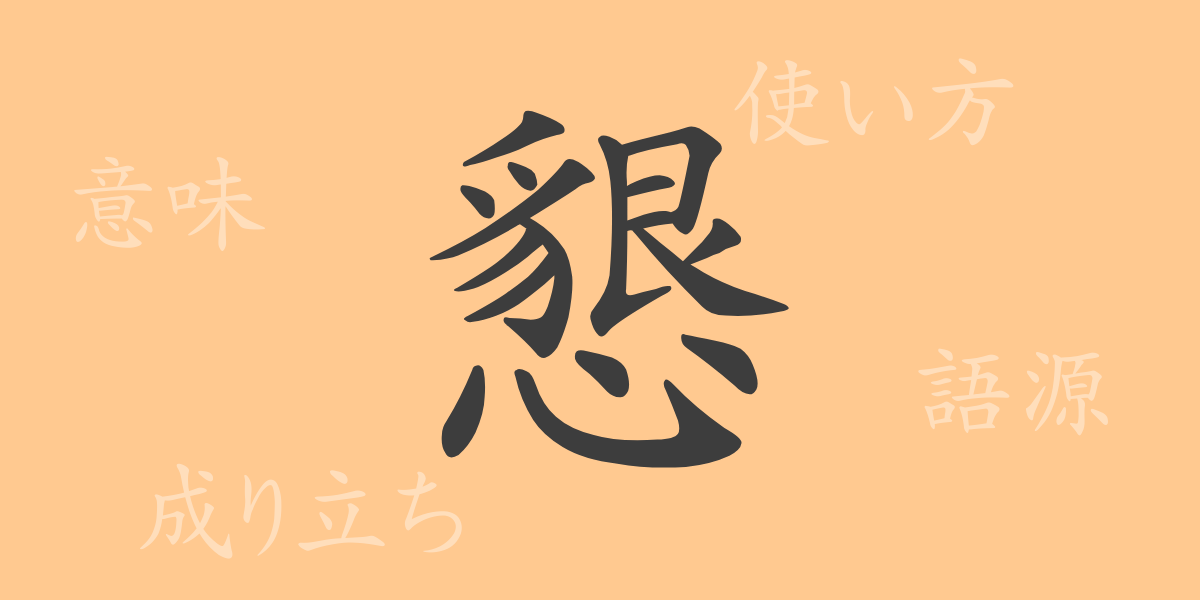The power of a single kanji character lies in the depth of history and culture embedded within its form and sound. The common kanji “懇(こん)” in Japanese is no exception. This article delves into the origins, modern usage, idioms, and expressions of “懇(こん)”, uncovering its charm and meaning. Through the rich expressive power of kanji, let us explore the profoundness of language.
Origins of 懇(こん)
The kanji “懇(こん)” has developed from ancient Chinese characters. It combines the character for heart “心(こころ)” with “艮(ごん)”, which signifies hardship or effort. This composition represents the act of wholeheartedly engaging in something or a sincere effort. Over time, it came to symbolize heartfelt wishes and earnest attitudes, and was incorporated into Japanese.
Meaning and Usage of 懇(こん)
“懇(こん)” means heartfelt, sincere, or earnest, and is often used to describe attitudes or behaviors. For instance, “懇願(こんがん)” means to earnestly request, “懇意(こんい)” refers to a close relationship, and “懇談(こんだん)” denotes a serious discussion, frequently used in business or formal settings.
Readings, Stroke Count, and Radical of 懇(こん)
Understanding the readings and structural elements of “懇(こん)” can deepen our comprehension of the character.
- Readings: The on’yomi (音読み) is “コン(kon)”, and it has no kun’yomi (訓読み).
- Stroke count: It consists of 17 strokes.
- Radical: It is classified under the “心部(りっしんべん)” radical.
Idioms, Phrases, and Proverbs Using 懇(こん)
Idioms, phrases, and proverbs that include “懇(こん)” are abundant in Japanese, each carrying distinct meanings and nuances. For example, “懇意にする(こんいにする)” means to become friendly with someone, “懇願する(こんがんする)” signifies to strongly request something, and “懇ろに(ねんごろに)” means with affection, often used to describe close relationships.
Conclusion on 懇(こん)
Through this article, we have deepened our understanding of the rich meanings and uses of “懇(こん)”. This character, more than just a letter, reflects emotions and relationships, playing a crucial role in Japanese language. By learning about the history and culture embedded in each word, we can build more enriched communication.

























